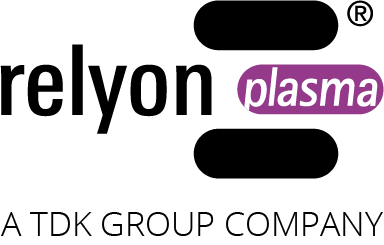Polycarbonate (PC)
Polycarbonate (PC) is a highly transparent engineering thermoplastic. They are exceedingly firm, stiff, hard and impact resistant, plus they are very suitable for electrical insulators.
Polycarbonates are resistant against water, many mineral acids as well as watery solutions of neutral salts and oxidizing agents. They can be processed with any methods commonly applied to thermoplastics.
Surface energy and contact angle
Polycarbonate is a polar polymere with a relatively high surface energy. Therefore a plasma activation before glueing or painting is often not required.
The following table shows the effect of plasma treatment with the plasma system plasmabrush PB3 on PC.
| Material: Polycarbonate | Surface energy | Contact angle H2O |
| Untreated | 47,5 mN/m | 76,0° |
| 5 minutes after plasma treatment | 67,5 mN/m | 32,0° |
| 1 hour after plasma treatment | 68,0 mN/m | 32,0° |
| 2 hours after plasma treatment | 68,5 mN/m | 33,0° |
| 4 hours after plasma treatment | 67,5 mN/m | 34,0° |
Application
Their low scratch resistance can be compensated with coatings based on e. g. polysiloxane, polyepoxy or polyurethane acrylate. Even a polysiloxane varnish only 5-8 micrometers thick is sufficient to provide the semi-finished polycarbonate product or workpiece with a surface as hard as glass, without diminishing its hot forming properties.
The material’s chemical and UV resistance can be significantly enhanced through suitable varnishes. Moreover, specialized coatings provide polycarbonates with self-cleaning or waterproof surfaces. As a compound with transparent thermoplastic polyutheranes (TPUs), polycarbonate can easily be made into lightweight, UV-resistant laminated safety glass panes.
Learn about our products >>



